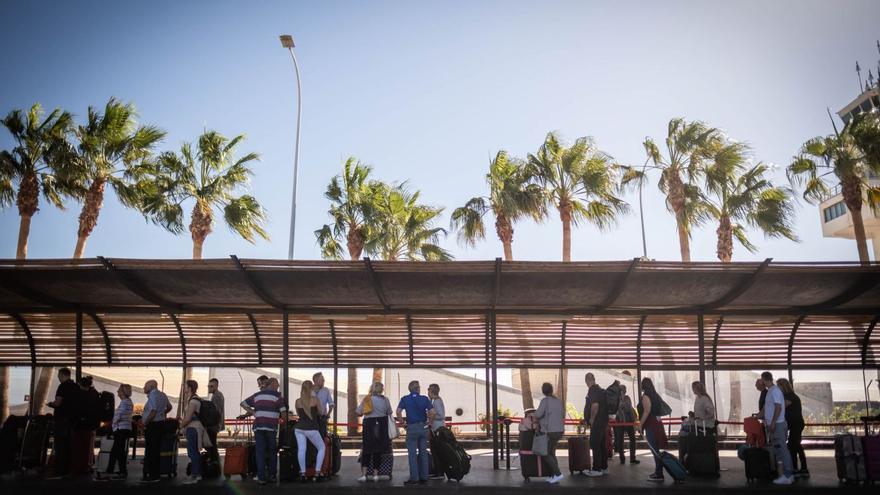
Tenerife It has four sensitive areas in terms of transport: the Tenerife North-Ciudad de La Laguna and Tenerife Sur-Reina Sofía airports, as well as the ports of Santa Cruz de Tenerife and Los Cristianos (Arona). To regulate the taxi service in all of them, there is also the corresponding Regulation approved definitively. In fact, the document encompasses both issues since it is the Regulation for the declaration of sensitive areas of ports and airports.
The Plenary of Tenerife Council took the final approval agreement in the extraordinary session held on April 5, 2013, published on the 24th of that same month in number 56 of the Official Gazette of the Province. It never came into force because the sole transitional provision of the Regulation establishes that “it will be suspended until the telematics platform provided for in Article 7 is implemented and the maximum quotas indicated in the aforementioned article are set.” And specifically: “Passengers cannot be picked up in ports and airports declared sensitive areas by taxis other than those of the municipality in which the aforementioned infrastructures are located.”
Failed attempt
The regulation of the collection of travelers, previously agreed upon (as reflected in the Regulation of sensitive areas), had a complicated birth. The first reference dates back to the ordinary session of the Island Government Council on October 3, 2011, which agreed to raise the approval to Plenary, but the Permanent Plenary Commission on Economy, Competitiveness, Mobility and Tourism left the matter on the table on October 24. that month of October. It was on September 28, 2012 when the Plenary Council initially approved the Regulation, the text of which was published in the BOP on October 24 11 years ago.
Twelve allegations
During the public exhibition period, the document received a dozen allegations presented by the town councils of Granadilla de Abona and San Miguel de Abona. –municipalities of origin of the taxi drivers authorized to operate at the Tenerife South Airport–, Radio Taxi La Laguna, the sector associations of both municipalities, the Regional Taxis Federation of Canary Islands (Fedetax), the Union of Self-Employed Taxi Workers (UTAT), Tele Taxi Isla de Tenerife, the Provincial Association of Ship Agents, two taxi drivers from Santa Cruz de Tenerife and a third from La Laguna. The Plenary accepted only the allegation made by the Granadilla de Abona City Council regarding the regulation of the rates to be applied in sensitive areas and which gave rise to the fifth additional provision of the Regulation. The rest were rejected in a non-unanimous agreement, since the PP abstained. The insular Government was then formed by CC and PSOE.
The transfer and the platform
The Regulations for the declaration of Sensitive areas of ports and airports in Tenerife points out that taxi drivers who want to pick up travelers from them will have to be hired in advance. To carry out the service, they must carry the document proving the previous hiring or transfer. It is up to the Cabildo to establish maximum quotas of transfers based on the supply and demand of taxis in sensitive areas.
The operation requires a telematics platform for registration, control and monitoring. Transfers issued at least 24 hours in advance must be recorded in this tool.
Currently
Given the persistence of queues of passengers waiting for a taxi at Tenerife South Airport, this week (10 and a half years after final approval), The Cabildo, Fedetax and the affected municipalities and taxi drivers held a meeting in which they reached an agreement in principleas a result of which the president of the insular Corporation, Rosa Davila, expressed his satisfaction with “the consensus for the declaration by the Tenerife Council of the South Airport as a sensitive area.” Now they will work based on a proposal that comes from Granadilla de Abona (City Hall and taxi drivers), above all, by which only those taxis that arrive at the Reina Sofía as a destination for a previous service will be authorized to pick up passengers and only when they register. «demand peaks». Aarón Afonso (PSOE) remembers that sensitive areas already exist and their Regulations already exist. The telematics platform is missing.
















